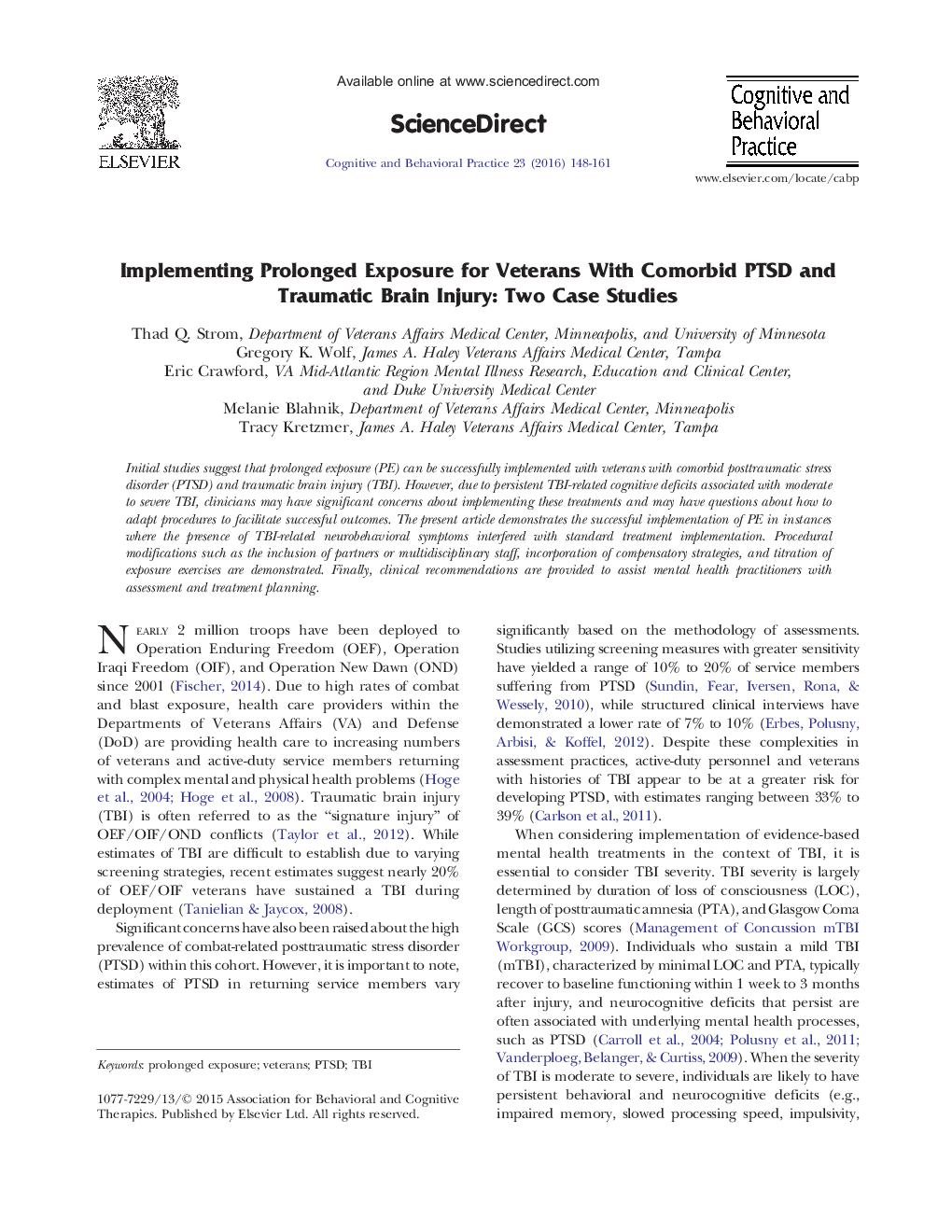| Article ID | Journal | Published Year | Pages | File Type |
|---|---|---|---|---|
| 904230 | Cognitive and Behavioral Practice | 2016 | 14 Pages |
•Two case studies show that PE can be safely and effectively implemented with veterans with co-occurring PTSD and TBI.•We demonstrate the effective implementation of protocol consistent modifications to yield positive outcomes.•We discuss clinical recommendations for the assessment and successful implementation of PE with this population.
Initial studies suggest that prolonged exposure (PE) can be successfully implemented with veterans with comorbid posttraumatic stress disorder (PTSD) and traumatic brain injury (TBI). However, due to persistent TBI-related cognitive deficits associated with moderate to severe TBI, clinicians may have significant concerns about implementing these treatments and may have questions about how to adapt procedures to facilitate successful outcomes. The present article demonstrates the successful implementation of PE in instances where the presence of TBI-related neurobehavioral symptoms interfered with standard treatment implementation. Procedural modifications such as the inclusion of partners or multidisciplinary staff, incorporation of compensatory strategies, and titration of exposure exercises are demonstrated. Finally, clinical recommendations are provided to assist mental health practitioners with assessment and treatment planning.
